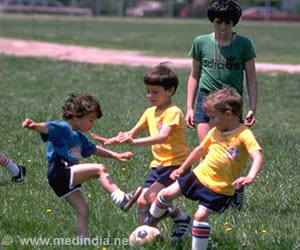Two academics at University of Birmingham are calling for more research to be carried out looking at how the brains of sportspeople – including children – react when they receive a blow to the head.

Dr. Michael Grey, from the University's School of Sport, Exercise and Rehabilitation Sciences, and Prof Tony Belli, from the School of Clinical and Experimental Medicine, are running a study to investigate the brains of sportspeople in the aftermath of a concussion – they are trying to develop a better test to aid the return to play decision.
This week (Thursday), during the British Science Festival, they will host a gathering of key researchers and clinicians across the UK at Birmingham to share research ideas which may ultimately lead to answers over the damage done by repeated head trauma in sport.
The duo want to see more being done to protect players of all ages and levels, from grassroots sport to the professionals. This includes better education programmes about how to recognise concussion and stricter adherence to return to play guidelines.
Last month, a group of parents in the USA filed a lawsuit against FIFA which pushes for rule changes around the return to play following a concussion, as well as limits on how many times children under 17 can head the ball.
Dr. Grey agrees that heading the ball could have serious repercussions for children and said: "There is good evidence to suggest heading the ball in children needs to be looked at very closely. Children's brains are not fully formed, they are not as well protected as an adult and we do not fully understand the damage these repeated blows to the head are doing to these children's brains. We must have more research into this area."
Advertisement
Source-Eurekalert











